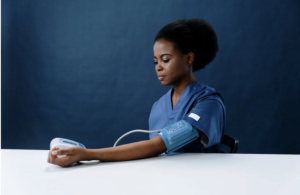The Main High Blood Pressure Symptoms
High blood pressure, or hypertension, is a common medical condition affecting millions worldwide. It can lead to serious health complications like heart disease, stroke, and kidney failure. Understanding the symptoms of high blood pressure is essential to managing the condition and preventing further damage. We will discuss the main high blood pressure symptoms and their potential implications.
Headaches
 Headaches are a common symptom of high blood pressure, but they are not always present. When they do occur, they are typically described as throbbing or pulsating and often occur in the morning. If you have frequent headaches, it is essential to monitor your blood pressure and seek medical attention if necessary.
Headaches are a common symptom of high blood pressure, but they are not always present. When they do occur, they are typically described as throbbing or pulsating and often occur in the morning. If you have frequent headaches, it is essential to monitor your blood pressure and seek medical attention if necessary.
Dizziness
Dizziness or lightheadedness can occur when blood pressure is too high or too low. In the case of high blood pressure, it occurs when the blood vessels in the brain constrict, reducing blood flow to the brain. This can lead to a feeling of lightheadedness, dizziness, or even fainting.
Chest Pain
Chest pain can occur in people with high blood pressure, particularly during physical exertion or times of emotional stress. This symptom is a sign that the heart is not getting enough oxygen-rich blood and can be a warning sign of a heart attack or other serious cardiac event. You should note that other ailments like indigestion and anxiety can also cause chest pain.
Shortness of Breath

Shortness of breath can occur in people with high blood pressure due to the reduced blood flow to the lungs. This can make breathing more difficult, leading to fatigue, weakness, and even fainting. A doctor should be consulted if shortness of breath is accompanied by other symptoms such as chest pain or dizziness.
Vision Changes
High blood pressure can affect the blood vessels in the eyes, leading to vision changes such as blurry vision or even vision loss in severe cases. This symptom is particularly concerning and requires immediate medical attention.
Nausea and Vomiting
Nausea and vomiting are not common symptoms of high blood pressure, but they can occur in severe cases. These symptoms typically indicate that the blood pressure is extremely high and requires emergency medical attention. Most people suffering from high blood pressure have stated that they experience nausea and vomiting before fainting or having a stroke.
High blood pressure is a serious medical condition that can lead to significant health complications. Recognizing the signs and symptoms of high blood pressure is essential, as early detection and treatment are crucial for preventing further damage. If you experience any of these symptoms, seeking medical attention as soon as possible is essential. By understanding the main high blood pressure symptoms, you can ensure that you receive the proper diagnosis and care.

